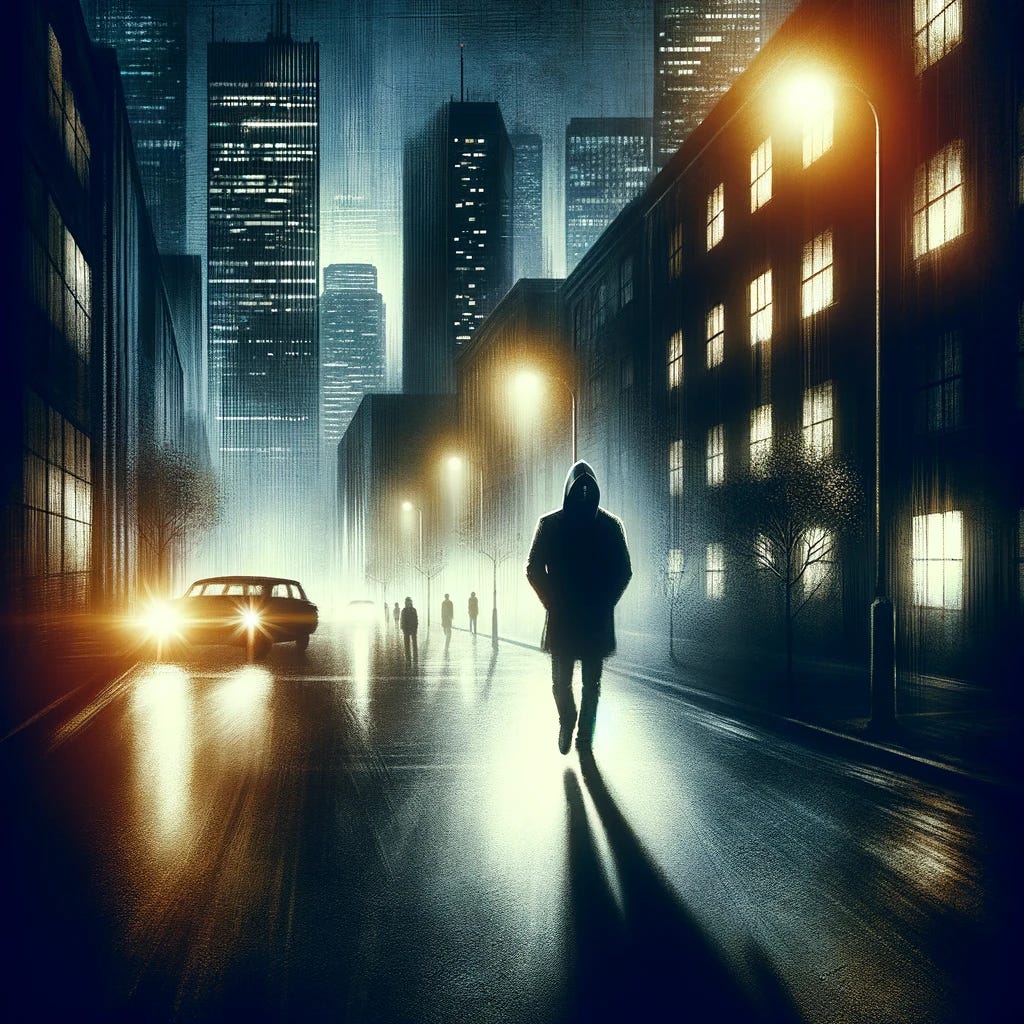Victim Blaming
Assigning Blame: Whose Fault is Crime?
Consider the scenario where you find yourself walking late at night and, unfortunately, you become a victim of a crime, such as robbery. You were well aware of the risk associated with such late-night excursions; therefore, does it imply that you are to share some blame? In some interpretations of causality, your actions indeed were a necessary factor in the crime taking place. If you had chosen not to walk at that hour, the crime would not have occurred. In essence, your presence at that place and time contributed to the commission of the crime.
Now, contemplate the perpetrator's circumstances. In an alternate world where they belonged to the middle class, they might not have become a perpetrator of street crime. Yes, crimes are committed by people from all strata of society, including (and especially) billionaires, but street crimes are rarely their modus operandi. Society, through more equitable resource distribution, could have elevated the perpetrator to the middle class, hence potentially reducing their likelihood of becoming a perpetrator. So, from another causality perspective, social policies regarding resource distribution play a role in the occurrence of such crimes.
However, the common public discourse often lays blame solely on the perpetrator, as their conscious decision to commit the crime and their presence at the location was a crucial factor leading to the crime.
Coase's Theorem posits that when trade in an externality is possible, and there are no transaction costs, parties will negotiate towards an efficient outcome, regardless of the initial property rights allocation. Take, for example, a chicken farm located adjacent to a suburban neighbourhood. The farm produces an unpleasant smell, but also valuable chickens. The farm owner and the neighbours, given their respective rights, would negotiate an optimal level of odour nuisance to maximize collective benefits.1
Drawing parallels with crime, it can be argued that the reduction of crime is a positive externality of education, as suggested by this study. Inequality is often perceived to increase crime, thus acting as a negative externality. Moreover, crime certainly imposes externalities on the victim, where the cost inflicted is generally higher than the gain to the perpetrator. All these factors indicate that society collectively should aim to reduce such crimes. [I hope this is not controversial among my readership, recognising both that HOW crime is reduced is indeed important and the increasingly held perspective of ACAB.]
The Transport Consequences of Crime
The presence of crime influences potential victims to adjust their behaviour, such as avoiding walking late at night and instead using a car or taxi, or simply refraining from traveling. Simultaneously, the opportunity for crime might incite criminals to roam more. I suspect that each criminal deters more potential victims than they actually victimise.
Therefore, the demand for travel, particularly though not only late-night travel, is significantly influenced by both the perceived and real safety levels. However, this aspect is largely ignored in our travel behaviour models. If a community succeeds in reducing crime levels, and the perception of crime levels, there might be an increase in walking and a decrease in driving, holding all other factors constant. The precise extent of this shift, however, remains uncertain.
Lyrics
In a related note, the first stanza came to me for some reason. I gave it to ChatGPT4 to complete the rest …
It’s your fault, you really shouldn’t have been there It’s your fault, what were you doing out then It’s your fault, you shouldn’t have been dressed like that It’s your fault, why didn’t you fight them Victim blaming, victim blamed (Verse 2) It's your fault, you were asking for it, they say It's your fault, you should've just walked away It's your fault, you must have led them on somehow It's your fault, you should have known better by now (Chorus) Victim blaming, victim blamed It's a cycle, it's a game But we won't let it define us We'll rise above the shame (Bridge) We'll break the chains, we'll stand up tall No longer silenced by their call We're not at fault, we'll make them see That victims deserve to be set free (Verse 3) It's not your fault, don't let them tear you down It's not your fault, don't let them steal your crown It's not your fault, you have the right to be heard It's not your fault, let's change the narrative, spread the word (Chorus) Victim blaming, victim blamed It's a cycle, it's a game But we won't let it define us We'll rise above the shame (Outro) Together we'll stand, united and strong No longer accepting what's undeniably wrong Victim blaming, it's time to end Let healing begin, with love we'll mend
I hereby place the lyrics in the public domain if someone actually wants to turn this into a song and write the music.
If the farm were there first, and the suburbanites moved in, the suburbanites caused the externality, as before there was no-one there to smell the chickens but some other farmer’s cows. Whether this holds in a legal sense depends. However if the suburbanites were there first, and the chicken farm moved in, the farm would undoubtedly be declared a nuisance under common law. All of this is to explain why zoning exists.
Keep reading with a 7-day free trial
Subscribe to Transportist to keep reading this post and get 7 days of free access to the full post archives.


